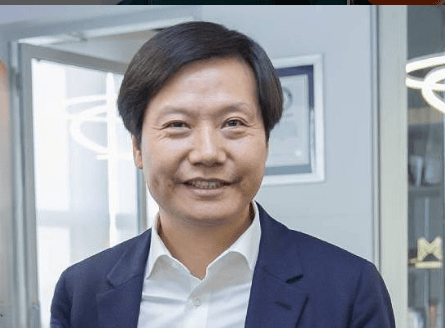Lei Jun co-founded Xiaomi in 2010 with the goal of redefining how technology could be incorporated into daily life, not just competing in the mobile hardware market. Lei’s path has been molded by deliberate ambition and innate timing, from his early days pitching low-cost smartphones with Apple-caliber polish to his most recent electric vehicle innovation. He has guided Xiaomi’s growth with a vision that has proven remarkably effective, earning him a net worth of $44.6 billion by 2025, much like a conductor directing a symphony.

The surprisingly rapid success of Xiaomi’s electric vehicle line and investor optimism have driven a 250% increase in the company’s shares in recent months. That number alone shows how Lei’s leadership has resonated with both markets and consumers, reflecting more than just stock performance. Lei pushed innovation into new frontiers by producing high-tech cars quickly and at scale, while others stagnated in R&D or mainly relied on legacy products. His fortune has been significantly impacted, and he is now unquestionably one of the richest people in China.
Lei Jun – Personal & Professional Profile
| Name | Lei Jun |
|---|---|
| Born | 16 December 1969, Xiantao, Hubei, China |
| Education | BEng, Wuhan University |
| Net Worth (2025) | $44.6 Billion |
| Current Roles | Founder, Chairman & CEO of Xiaomi; Chairman of Kingsoft, Shunwei Capital, UCWeb, YY.com |
| Political Role | Member of China’s National People’s Congress (since 2013) |
| Spouse | Zhang Tong |
| Children | Two |
A Code-Born Vision Enhanced by Consumer Strategy
More than technical literacy, Lei Jun’s computer engineering background gave him the kind of accuracy that now characterizes Xiaomi’s product ecosystem. He started out as a software developer before becoming the head of Kingsoft, one of the first software giants in China. The career path of tech giants like Steve Jobs and Bill Gates is similar to that of Lei, who has maintained a very low profile in international media and seldom engages in public spectacle.
By making calculated investments in wearable technology, smart home appliances, and electric cars, he has created a highly integrated and adaptable ecosystem. Customers of Xiaomi are now more than just phone users; they are a part of a lifestyle grid that connects their homes, cars, and other gadgets. This integrated strategy has been especially helpful in emerging markets where functionality and affordability are necessary rather than optional.
Electric Ambition: EV Leap and SU7 Launch
In March 2024, Xiaomi debuted the SU7 electric car, raising doubts about whether a phone company could truly compete with BYD or Tesla. Lei, however, produced a product that was both stylish and surprisingly reasonably priced by utilizing Xiaomi’s vast R&D resources and extensive manufacturing logistics. Within weeks, the SU7’s initial sales surpassed 10,000 units, indicating that the market was prepared.
The move into EVs wasn’t a sudden leap; it was a calculated extension of Xiaomi’s mission. Xiaomi’s move into electric mobility is part of a broader strategy to become the backbone of digital life, much like Apple did with its transition from iPods to iPhones to wearables. Xiaomi has developed a model that is noticeably quicker and more flexible than its rivals by integrating its EV project with its smart tech portfolio.
The Influence of Political Neutrality and Timing
Lei’s impact extends beyond the realm of technology. He has been a nonpartisan congressman in China’s National People’s Congress since 2013, which gives him a very distinct position that gives him some degree of freedom. He has avoided many of the political pitfalls that have hampered other well-known Chinese businessmen by remaining neutral. This position has proven to be particularly strategic in light of the growing scrutiny surrounding tech monopolies.
His style of leadership is equally unique. Lei prefers to let performance drive the story rather than employ dramatic gestures or contentious positions. He consistently exhibits discipline, focus, and calm persuasiveness whether he is presenting products or chairing board meetings. Lei Jun’s presence is incredibly dependable in a business environment where volatility frequently overshadows value.
Putting Money Into the Upcoming Innovation Wave
Lei has invested in e-commerce, social media, and mobile startups through his venture capital firm, Shunwei Capital, paying special attention to scalable platforms. His engagement with JOYY Inc., a live-streaming business listed on the Nasdaq, demonstrates his comprehension of the digital intersection of culture and commerce. Lei positions himself as a designer of ecosystems as well as a product builder by investing in platforms that influence online behavior.
His insight has significantly enhanced Xiaomi’s capacity to change course without losing steam over the last ten years. While many companies were reducing their workforces or halting research and development during the pandemic, Xiaomi quietly grew its supply chains, unveiled new products, and set the stage for its push toward electric vehicles. Now, that tactic seems foresighted.
Perseverance, not prestige, is the foundation of a billionaire
Lei keeps his private life private, in contrast to many of his peers. He chooses to keep family matters out of the spotlight and resides in Beijing with his wife Zhang Tong and their two kids. He has chosen to present a profile that is characterized by performance, humility, and consistency rather than one that is centered on wealth or prestige. His success has felt more genuine in many ways because of that restraint.
Lei Jun is anticipated to become more and more important in China’s consumer and digital strategy over the next few years. With DeepSeek’s AI innovations helping to boost confidence in Chinese technology, Xiaomi’s future appears especially bright. The business is influencing the wave rather than merely riding it.
